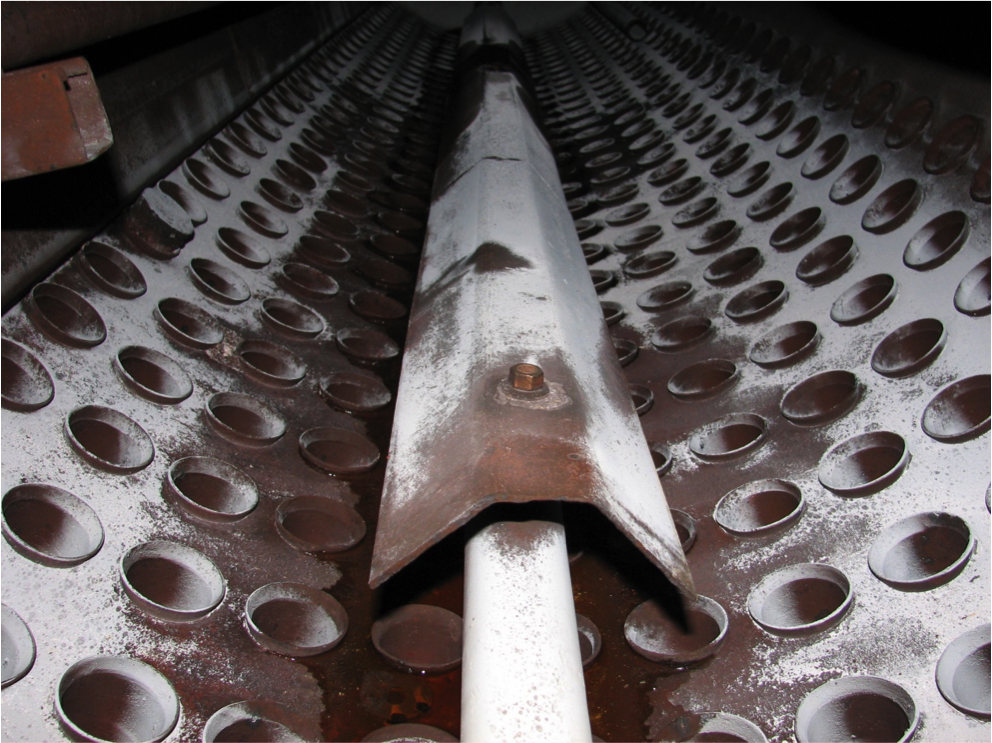Deposition: Scale and Fouling
Deposits can be inorganic, organic or a mixture of the two.
Inorganic deposition, also called scale, is normally caused by dissolved solids that fall, or precipitate, out of solution, resulting in a tightly adherent layer of solid deposit, often crystalline in nature. It preferentially forms on heat transfer surfaces in cooling and boiler systems, where it retards heat transfer like a layer of insulation.
Organic deposits are typically a mixture of algae or bacterial slime, plus inorganic components like rust and scale that become trapped in the matrix. In addition to retarding heat transfer, these deposits can lead to under-deposit corrosion.
"Fouling deposits" is a catch-all term that has come to mean any kind of deposit, or a system in which deposition has occurred. It has also been used to describe amorphous accumulations of sludge, formed from airborne particulates and which can allow under-deposit corrosion and harbor bacteria, in a cooling tower's sump.
To prevent inorganic deposits, scale inhibiting polymers are employed, in conjunction with controls that limit the concentration of certain dissolved solids. In steam boiler systems pretreatment equipment that removes dissolved solids is normally used to help prevent common types of scale.
Organic deposition is avoided by preventing algal growth and limiting bacteria populations.
Sludge deposits are minimized by keeping open cooling systems clean. Side stream filtration and regular cleaning are proven methods.













